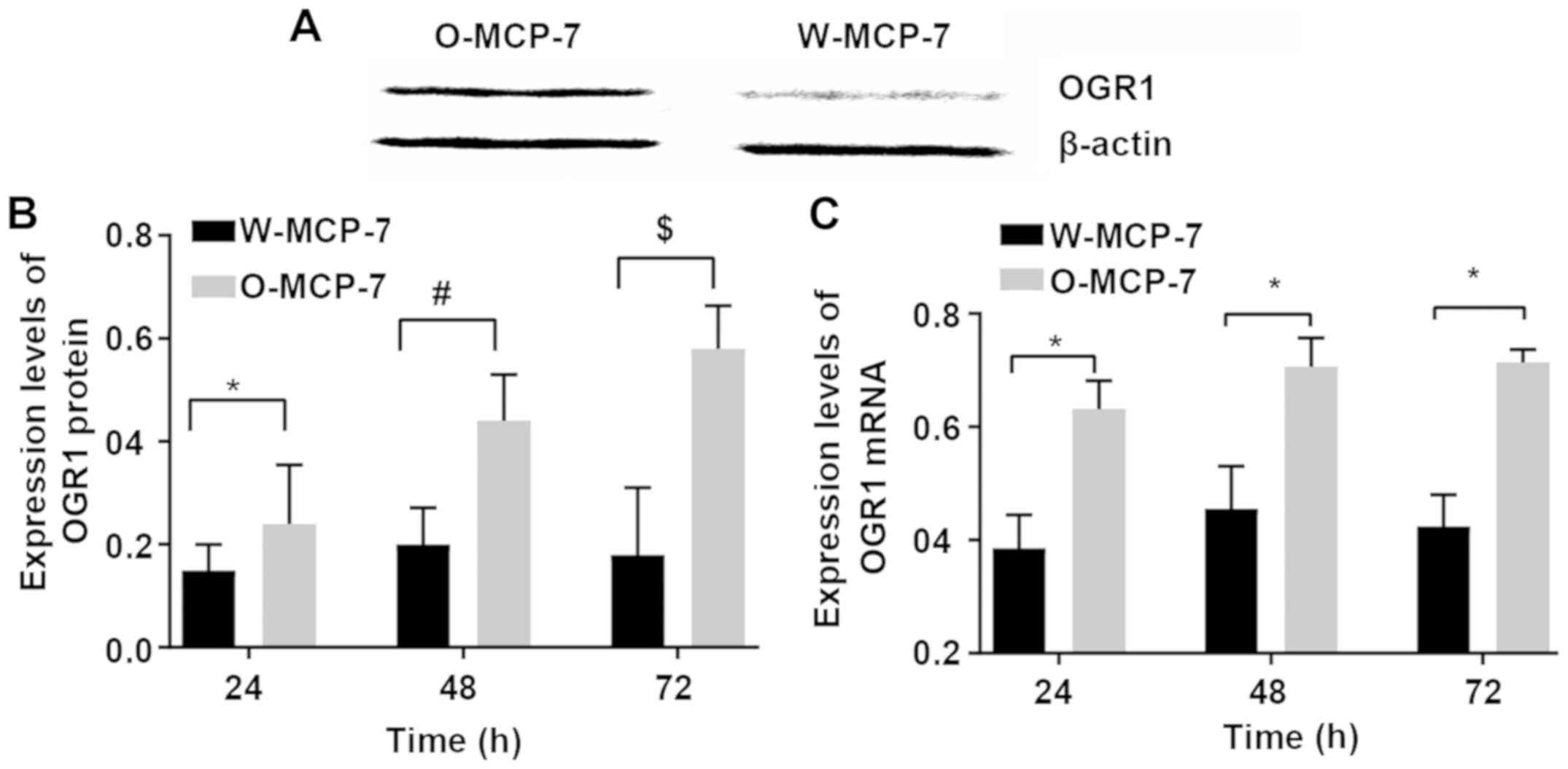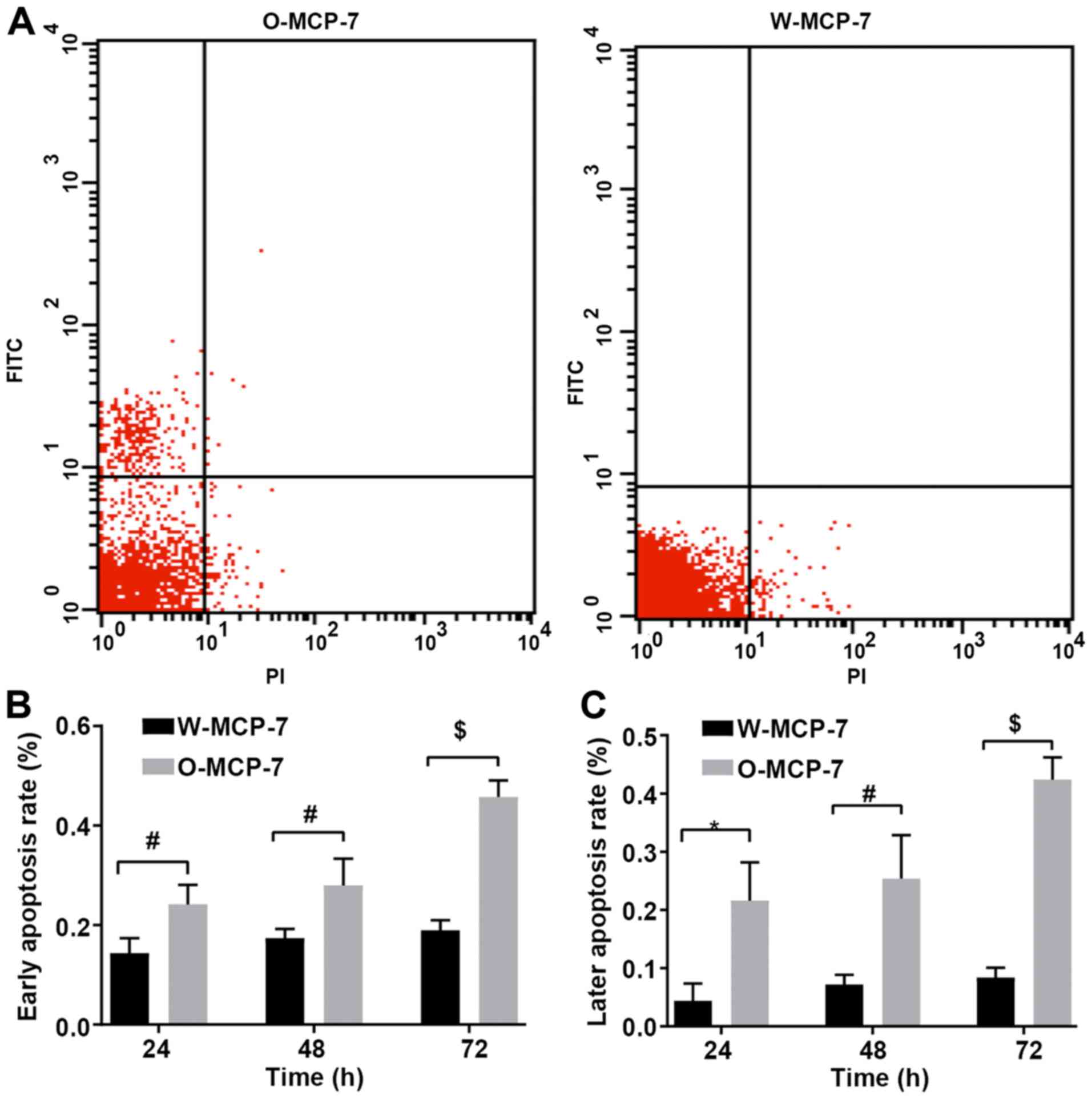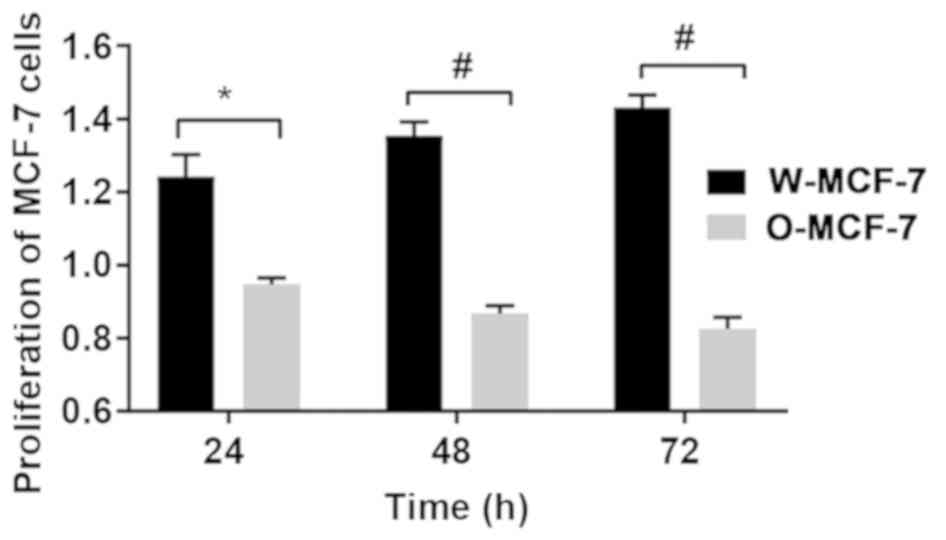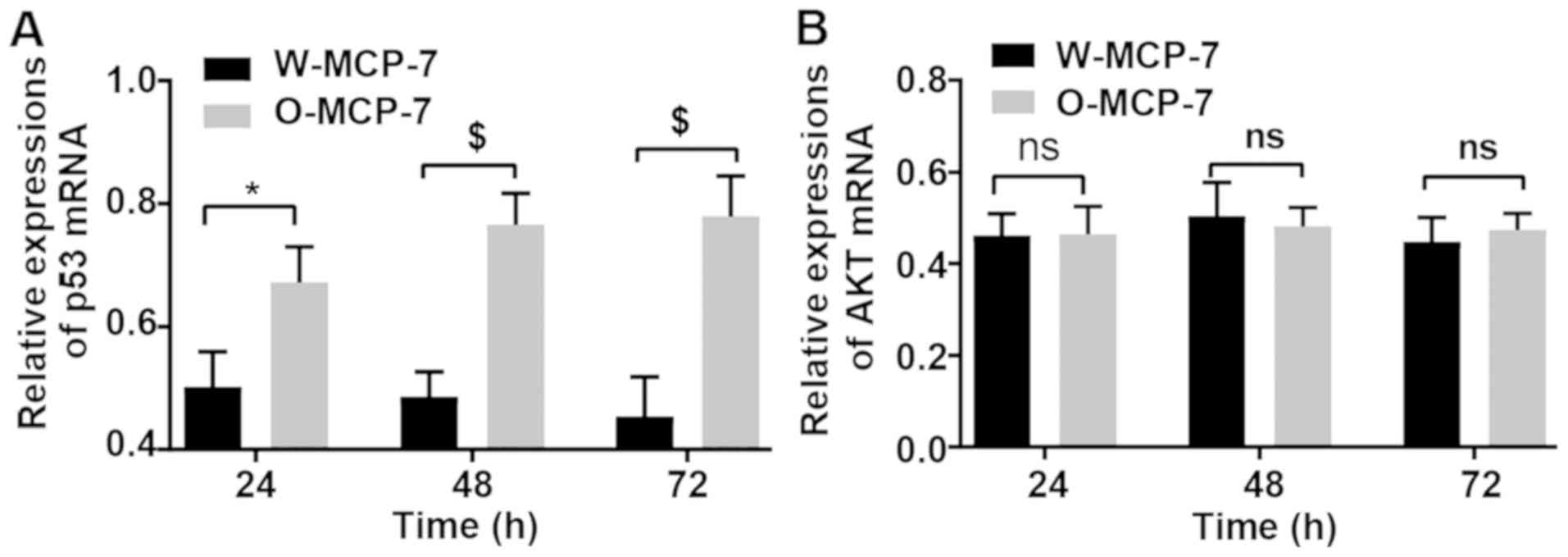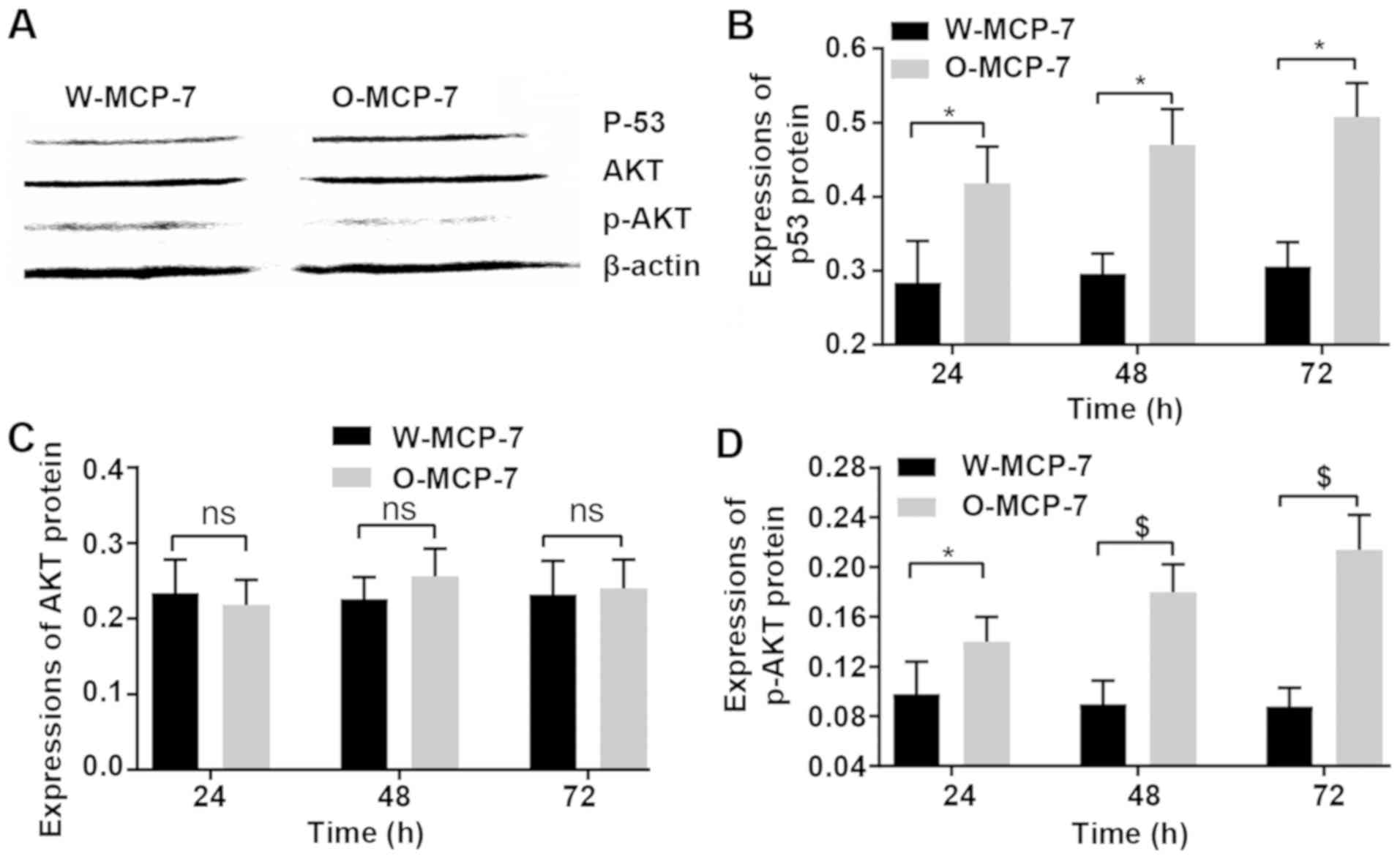|
1
|
Sirkisoon SR, Carpenter RL, Rimkus T,
Miller L, Metheny-Barlow L and Lo HW: EGFR and HER2 signaling in
breast cancer brain metastasis. Front Biosci (Elite Ed). 8:245–263.
2016.PubMed/NCBI
|
|
2
|
Siegel RL, Miller KD and Jemal A: Cancer
statistics, 2015. CA Cancer J Clin. 65:5–29. 2015. View Article : Google Scholar : PubMed/NCBI
|
|
3
|
Fidler IJ: The pathogenesis of cancer
metastasis: The ‘seed and soil’ hypothesis revisited. Nat Rev
Cancer. 3:453–458. 2003. View
Article : Google Scholar : PubMed/NCBI
|
|
4
|
Nola S, Sin S, Bonin F, Lidereau R and
Driouch K: A methodological approach to unravel organ-specific
breast cancer metastasis. J Mammary Gland Biol Neoplasia.
17:135–145. 2012. View Article : Google Scholar : PubMed/NCBI
|
|
5
|
O'Shaughnessy J: Extending survival with
chemotherapy in metastatic breast cancer. Oncologist. 10 (Suppl
3):20–29. 2005. View Article : Google Scholar : PubMed/NCBI
|
|
6
|
Shao MM, Liu J, Vong JS, Niu Y, Germin B,
Tang P, Chan AW, Lui PC, Law BK, Tan PH, et al: A subset of breast
cancer predisposes to brain metastasis. Med Mol Morphol. 44:15–20.
2011. View Article : Google Scholar : PubMed/NCBI
|
|
7
|
Hohensee I, Lamszus K, Riethdorf S,
Meyer-Staeckling S, Glatzel M, Matschke J, Witzel I, Westphal M,
Brandt B, Müller V, et al: Frequent genetic alterations in EGFR-
and HER2-driven pathways in breast cancer brain metastases. Am J
Pathol. 183:83–95. 2013. View Article : Google Scholar : PubMed/NCBI
|
|
8
|
Aragon-Ching JB and Zujewski JA: CNS
metastasis: An old problem in a new guise. Clin Cancer Res.
13:1644–1647. 2007. View Article : Google Scholar : PubMed/NCBI
|
|
9
|
Brufsky AM, Mayer M, Rugo HS, Kaufman PA,
Tan-Chiu E, Tripathy D, Tudor IC, Wang LI, Brammer MG, Shing M, et
al: Central nervous system metastases in patients with
HER2-positive metastatic breast cancer: Incidence, treatment, and
survival in patients from registHER. Clin Cancer Res. 17:4834–4843.
2011. View Article : Google Scholar : PubMed/NCBI
|
|
10
|
Klein A, Olendrowitz C, Schmutzler R,
Hampl J, Schlag PM, Maass N, Arnold N, Wessel R, Ramser J, Meindl
A, et al: Identification of brain- and bone-specific breast cancer
metastasis genes. Cancer Lett. 276:212–220. 2009. View Article : Google Scholar : PubMed/NCBI
|
|
11
|
Niikura N, Hayashi N, Masuda N, Takashima
S, Nakamura R, Watanabe K, Kanbayashi C, Ishida M, Hozumi Y,
Tsuneizumi M, et al: Treatment outcomes and prognostic factors for
patients with brain metastases from breast cancer of each subtype:
A multicenter retrospective analysis. Breast Cancer Res Treat.
147:103–112. 2014. View Article : Google Scholar : PubMed/NCBI
|
|
12
|
Ludwig MG, Vanek M, Guerini D, Gasser JA,
Jones CE, Junker U, Hofstetter H, Wolf RM and Seuwen K:
Proton-sensing G-protein-coupled receptors. Nature. 425:93–98.
2003. View Article : Google Scholar : PubMed/NCBI
|
|
13
|
Livak KJ and Schmittgen TD: Analysis of
relative gene expression data using real-time quantitative PCR and
the 2(-Delta Delta C(T)) method. Methods. 25:402–408. 2001.
View Article : Google Scholar : PubMed/NCBI
|
|
14
|
Yan L, Chang Z, Liu Y, He BR and Hao DJ:
Primary spinal melanoma: A case report and literature review. Chin
Med J (Engl). 125:4138–4141. 2012.PubMed/NCBI
|
|
15
|
Yan L, Singh LS, Zhang L and Xu Y: Role of
OGR1 in myeloid-derived cells in prostate cancer. Oncogene.
33:157–164. 2014. View Article : Google Scholar : PubMed/NCBI
|
|
16
|
Li J, Guo B, Wang J, Cheng X, Xu Y and
Sang J: Ovarian cancer G protein coupled receptor 1 suppresses cell
migration of MCF7 breast cancer cells via a Gα12/13-Rho-Rac1
pathway. J Mol Signal. 8:62013. View Article : Google Scholar : PubMed/NCBI
|
|
17
|
Yuan FL, Wang HR, Zhao MD, Yuan W, Cao L,
Duan PG, Jiang YQ, Li XL and Dong J: Ovarian cancer G
protein-coupled receptor 1 is involved in acid-induced apoptosis of
endplate chondrocytes in intervertebral discs. J Bone Miner Res.
29:67–77. 2014. View Article : Google Scholar : PubMed/NCBI
|
|
18
|
Datta SR, Brunet A and Greenberg ME:
Cellular survival: A play in three Akts. Genes Dev. 13:2905–2927.
1999. View Article : Google Scholar : PubMed/NCBI
|
|
19
|
Muise-Helmericks RC, Grimes HL, Bellacosa
A, Malstrom SE, Tsichlis PN and Rosen N: Cyclin D expression is
controlled post-transcriptionally via a phosphatidylinositol
3-kinase/Akt-dependent pathway. J Biol Chem. 273:29864–29872. 1998.
View Article : Google Scholar : PubMed/NCBI
|
|
20
|
Mayo LD and Donner DB: A
phosphatidylinositol 3-kinase/Akt pathway promotes translocation of
Mdm2 from the cytoplasm to the nucleus. Proc Natl Acad Sci USA.
98:11598–11603. 2001. View Article : Google Scholar : PubMed/NCBI
|
|
21
|
Michell BJ, Griffiths JE, Mitchelhill KI,
Rodriguez-Crespo I, Tiganis T, Bozinovski S, de Montellano PR, Kemp
BE and Pearson RB: The Akt kinase signals directly to endothelial
nitric oxide synthase. Curr Biol. 9:845–848. 1999. View Article : Google Scholar : PubMed/NCBI
|
|
22
|
Hurt KJ, Musicki B, Palese MA, Crone JK,
Becker RE, Moriarity JL, Snyder SH and Burnett AL: Akt-dependent
phosphorylation of endothelial nitric-oxide synthase mediates
penile erection. Proc Natl Acad Sci USA. 99:4061–4066. 2002.
View Article : Google Scholar : PubMed/NCBI
|
|
23
|
Kim D, Kim S, Koh H, Yoon SO, Chung AS,
Cho KS and Chung J: Akt/PKB promotes cancer cell invasion via
increased motility and metalloproteinase production. FASEB J.
15:1953–1962. 2001. View Article : Google Scholar : PubMed/NCBI
|
|
24
|
Kubiatowski T, Jang T, Lachyankar MB,
Salmonsen R, Nabi RR, Quesenberry PJ, Litofsky NS, Ross AH and
Recht LD: Association of increased phosphatidylinositol 3-kinase
signaling with increased invasiveness and gelatinase activity in
malignant gliomas. J Neurosurg. 95:480–488. 2001. View Article : Google Scholar : PubMed/NCBI
|
|
25
|
Iremashvili V, Burdick-Will J and Soloway
MS: Improving risk stratification in patients with prostate cancer
managed by active surveillance: A nomogram predicting the risk of
biopsy progression. BJU Int. 112:39–44. 2013. View Article : Google Scholar : PubMed/NCBI
|















